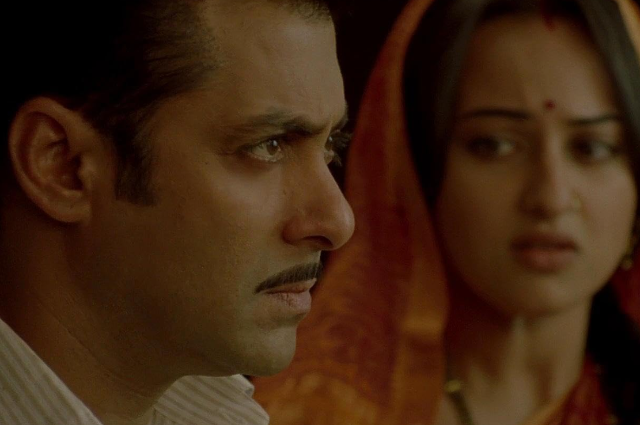Analysing gender stereotypes in 'reel' life
This article will explore the stereotypes that are constructed (intentionally or unintentionally) through movies and TV shows that influence young minds and strengthen already existing misconceptions.
Since ancient times, discrimination between a man and a woman has continued to exist. However, the exaltation of the same has created a mass stereotype that is unconsciously accepted by the people without fact-checking, or sometimes even knowingly.
Furthermore, the advent of media in strengthening these biases has influenced minds into believing the accuracy of it; henceforth creating a widespread misconception of the role of women in society.
The media has the ability to influence the public's opinion on certain issues. People tend to blindly believe things that are telecast on Television, without any fact-checking; this further leads them to have a biased opinion towards the particular issue.
This is the sole issue for gender stereotypes that arise among the masses. This has influenced young minds into believing these stereotypes and strengthening the same.
How the media showcases women in movies:
Most of the movies that have been considered as "Blockbuster" or "Superhit" are male-centric, with little or no character development for the female. The female lead is given petty roles such as "The hero's wife", "The weak mother", or "The lead who needs a man's help". The sole idea of this concept is to glorify the male lead, however, the women are portrayed as weak and dependent on men to showcase the superiority of men.
Often in movies, the girl (the female lead) belongs to the lower economic class, whereas the male is from the rich, elite class; this strengthens the belief that women are dependent on men and unable to afford a life of luxury. Though it might be a small detail seen in every movie, this creates a stereotype that men can run businesses and be rich, whereas women are doing a petty job and struggling. There are very few movies in which the female is in a high position like that of a CEO.
The female stars are used as a means of a "pretty face" in front of the camera, who can lure in the audience but have no proper role in the actual movie. The heroine is objectified and used just as a means of attracting the viewers, while the story focuses on the man.
"Items Songs" have been featuring in movies as early as 1930s. Earlier, no vulgarity was present, but these days, items songs are promoting woman as an object with vulgar lyrics and uncomfortable choreography.
The other concept seen in shows and movies is always concerned with women's weight, colour, height and beauty. The female lead in the show is ridiculed for her physical presence, then made to transform into the "ideal" woman type, which brings her laurels. A bias is again created about the woman's physical appearance among people.
The famous "saas-bahu" concept tends to depict hatred of women towards each other. Which, in fact, is untrue; this portrayal creates a feeling of anxiousness about the actual relationship between in-laws.
Last but not least, the "ideal woman" that is shy, doesn't talk much, suppresses herself, ignores her feelings, and when a character is portrayed the opposite, it's termed as "tomboy", "manly".
Portrayals of the "ideal woman" in movies tend to promote and set unreal standards for women in the society, which creates severe stereotypes that are unconsciously acquired by women themselves.
Therefore, these stereotypes need to be deconstructed by portraying proper and real-life characters of women in society with appropriate research and audience needs.
For example, Laapataa ladies, a Bollywood movie directed by Kiran Rao, released in 2023, is a great example of a newer approach towards breaking the stereotypes.
The story takes place in rural areas with imbuing culture and tradition, and a touch of modernity. Women in the movie are showcased as independent thinkers, capable of stepping up for their own rights and taking part in important decisions that affect them. Such movies are needed to break down the already existing image of a woman's character in mainstream movies.
The idea of "patriarchy" should be modified with certain changes like equal decision-making rights, economic independence for women and educating men regarding the same.
The women themselves need to teach fellow females in the society who believe these stereotypes and nurture the younger generations with a liberated mindset.
Campaigns, rallies, education, and awareness on media platforms can help in deconstructing stereotypes whilst promoting women's empowerment and highlighting womanhood at it's supreme in society.
Gender bias has existed since ancient times, the reason is yet unknown. People perceive women as "weak", "unworthy", "dependent" and whatnot, cause of? Unknown.
And media playing the biases in reel life strengthens the stereotypes due to its mass nature, which sets an agenda among the public; also influences their lifestyle and thinking perspective, which in turn leaves an impact on society. Therefore, it is of utmost importance to neturalise the biases for future generations so that women can be represented in an appropriate manner in movies and TV shows, which promote peace and productivity among women in society.

